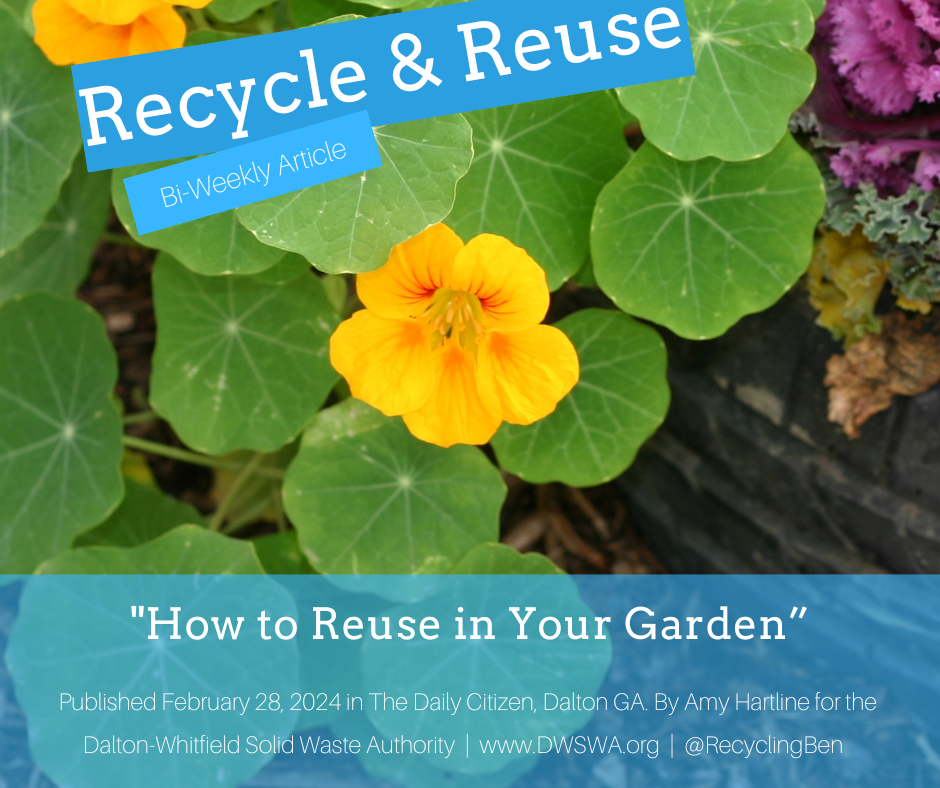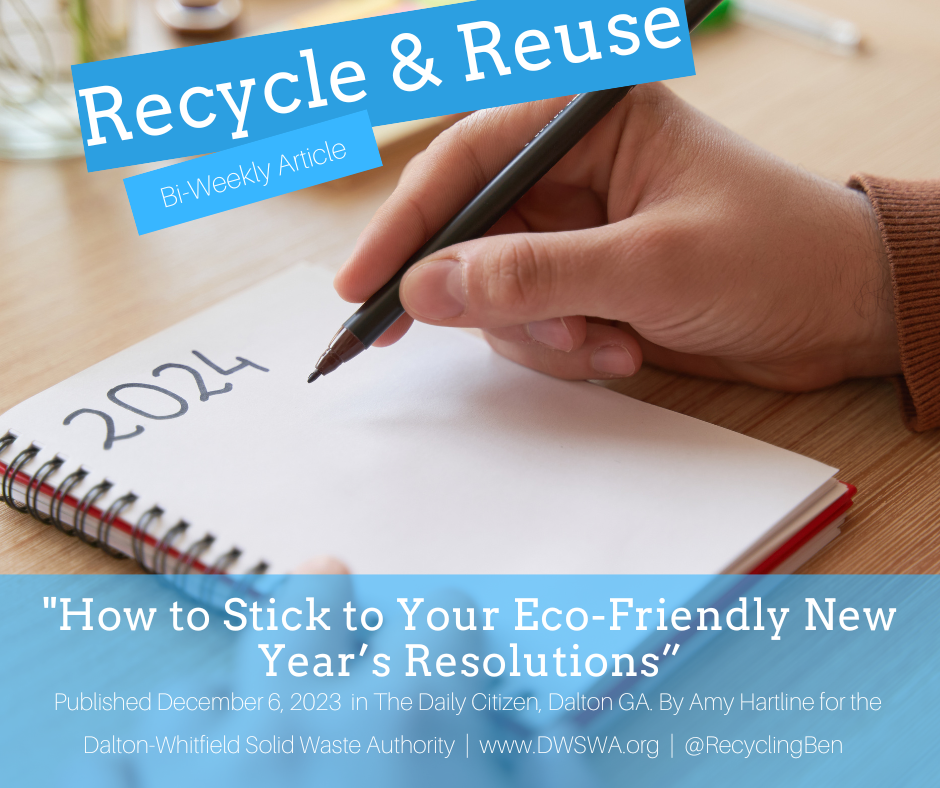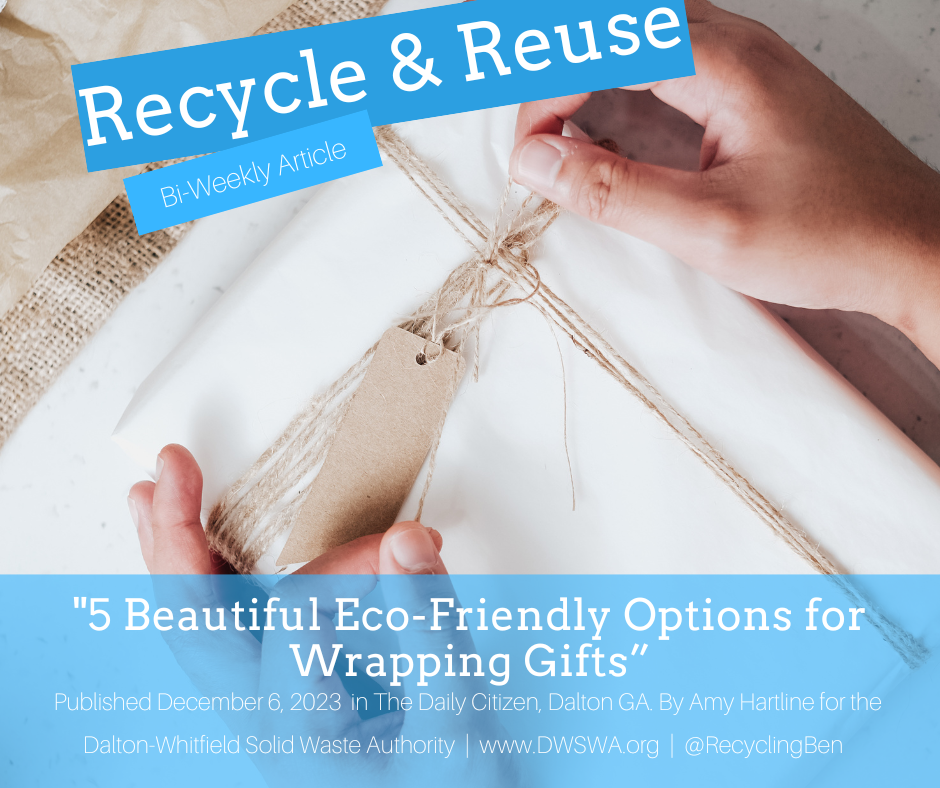Dalton’s Curbside Drivers Fight Recycling Contamination
/Each week you fill up your blue bin and place it on the curb to be picked up, but do you know all that goes in to picking up your recycling bin each week? The City of Dalton has curbside drivers that spend their time picking up bins and sorting out all of the recycling. Though there are only certain items accepted in the bins, they come across a lot of items that shouldn’t be in there too. This month, the curbside drivers gathered together for a training and review of items that are accepted and what to do when a household is putting in the wrong things.
Dalton curbside recycling drivers and crew (from left to right: Donny Lawson, Michael Blackburn, Dwayne Carvell, Dana Cochran, Mary Hyder, and Ruben Valencia) gather around a selection of items made from the recyclables they collect after their training.
A driver’s typical day starts with getting in the special curbside trucks. These trucks are different than your typical garbage truck. They have different compartments for each type of recycling. The driver takes a different route each weekday and then goes through the same routes on the same days the next week.
At each stop the driver sets the bin on a special shelf on the truck and then pulls out the recyclables one by one sorting them into the different compartments of the truck. Drivers separate out all of the paper, cardboard, plastic bottles and jugs, and aluminum and bimetal cans. Once they have completed a route, they take the recyclables they’ve collected to the Materials Recover Facility, also known as our local recycling center. Then, each type of recycling is dumped with like recyclables where it is sorted further.
There are dangerous moments as a curbside driver beyond the everyday dangers of truck driving. Some of the most dangerous items that they have come across include broken glass, needles, and bodily waste and fluids. None of these things should end up in a curbside bin and often even the people putting them in the bin realize it and try to hide it under paper or cardboard so the driver won’t see it until they are already handling the bin’s contents.
Some items aren’t dangerous but still make it harder to sort through the bin because they can’t be recycled curbside. The most common things that drivers find that don’t belong in the bin include cartons, food waste, plastic that isn’t a bottle or jug, and food waste. Food waste can cause issues as well by attracting to pests to your bin. These can then hurt the drivers if they are bit or stung and can also cause pests issues in or around your home. We also recommend rinsing out your bin whenever it gets dirty inside to cut down on pests and keep your recyclables clean.
Last year at this time, Dalton had recycled 557 tons and this year Dalton is trailing just slightly behind that at 528 tons. Every item that gets recycled stays in Georgia or Alabama and helps saves resources and support our regional economy.
To help make our drivers work easier Keep Dalton-Whitfield Beautiful has launched the “Door to Door: Recycle More!” program. In this program volunteers are given bilingual and simple door hangers that are hung up on doors through specific routes that tell residents how to start recycling and what items belong in the trash. Volunteers can help with this effort by signing up at https://www.volunteernwga.org/need/detail/?need_id=646496.
If you are in Dalton, you can request a recycling bin by calling the Dalton Sanitation Department at 706-278-5001 and giving them your address. They will drop off your new bin that you can place on the curb the same day as your trash pickup.
Our curbside drivers are ready to sort your bins and help Dalton be as clean and green as possible, but they can’t do it without your help. Make sure to review what recyclables are accepted at https://www.daltonga.gov/publicworks/page/recycling-instructions and give your driver a hearty thanks the next time you see them!
Amy Hartline is the recycling and education program coordinator for the Dalton-Whitfield Solid Waste Authority. Have a recycling question? Contact her at (706) 278-5001 or ahartline@dwswa.org.
































